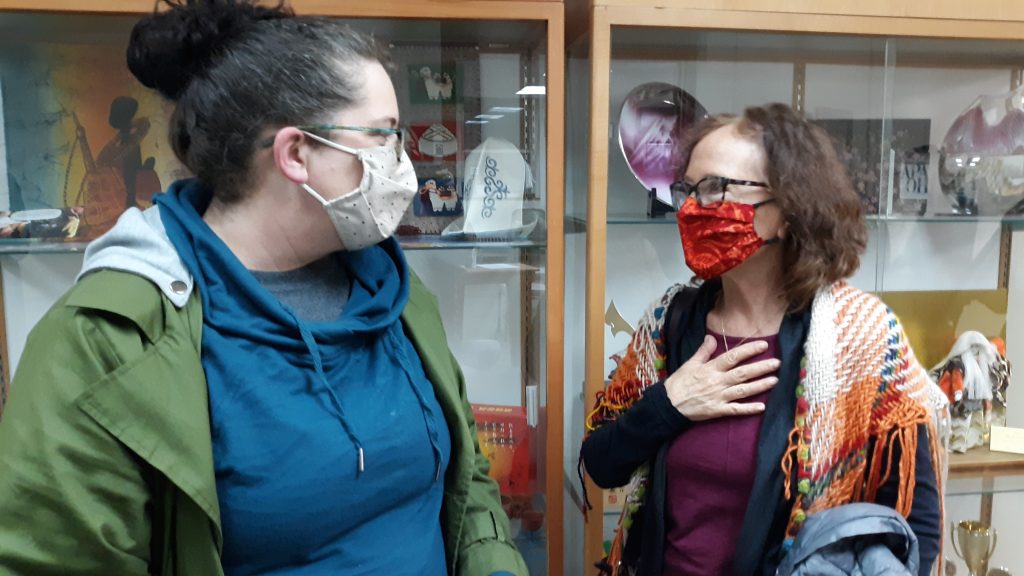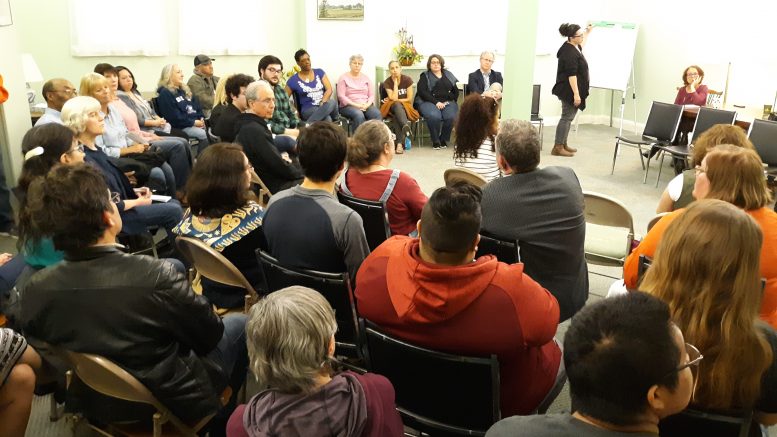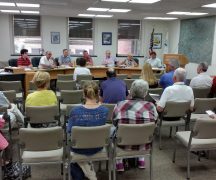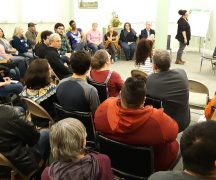By JAN LARSON McLAUGHLIN
BG Independent News
Two years ago, the racist assault against two teens in the Bowling Green Waffle House convinced the community it needed to do more to be welcoming and inclusive.
Changes were proposed to the city’s anti-discrimination ordinances that were first adopted more than a decade ago. The suggestions were born out of a series of community conversations held by La Conexion following the hate crime incident.
City Council was asked to upgrade the complaint process and expand the expectations that businesses take “reasonable” steps to deter discrimination and hate crimes in their establishments.
On Monday, members of the community thanked City Council for its efforts – but also pointed out a shortcoming in the legislation.
The new language, which was given its first reading on Monday, establishes a panel to hear complaints about discrimination, and expands the definition section on protected people.
But it stops short of requiring businesses to provide some training for their employees on how to handle discriminatory behavior. Many citizens pushed for the city to help businesses provide “tools to deal with perpetrators,” said Beatriz Maya, director of LaConexion.

Former BG council member Daniel Gordon talked about the importance of communities standing up to hate crimes and discrimination.
“We’ve seen again and again that hate has local roots, which means our first lines of defense are local resolve and local action,” Gordon said.
“Too many of us have stories of harassment or discrimination. Not everyone feels safe in sharing them,” he said. “We need a system of maximum trust, where everyone is fully committed to treating each other equally and where we know there exists a way to safely report incidents, be taken seriously, and where harm has been done, obtain justice.”
The proposed changes to the ordinance would do that by setting up a panel to hear concerns about hate crimes or discrimination. The panel would include the city administrator, a member of city council, and a member of the city’s Human Relations Commission.
“Many people are afraid to come forward, or didn’t know they had a right to,” said Amanda Schackow, co-leader of the La Conexion Immigrant Solidarity Committee.
Melanie Stretchbery thanked city officials for expanding the categories of people protected in the anti-discrimination legislation to include ethnicity, immigration status and source of income.
“We stand firm in supporting the adoption of changes,” she said.
But Stretchbery also asked that council consider adding the provision to help businesses provide training for employees on how to handle hate crimes or discrimination.
Janet Parks agreed, asking for some incentives for employers to train their staffs. She suggested that the city hold business owners responsible for providing reasonable training on how to stop discrimination that may occur in the workplace.
Parks pointed out that Bowling Green Police Division provides the training at no cost to local businesses.
“We continue to believe it’s a very important part of this update,” she said.





